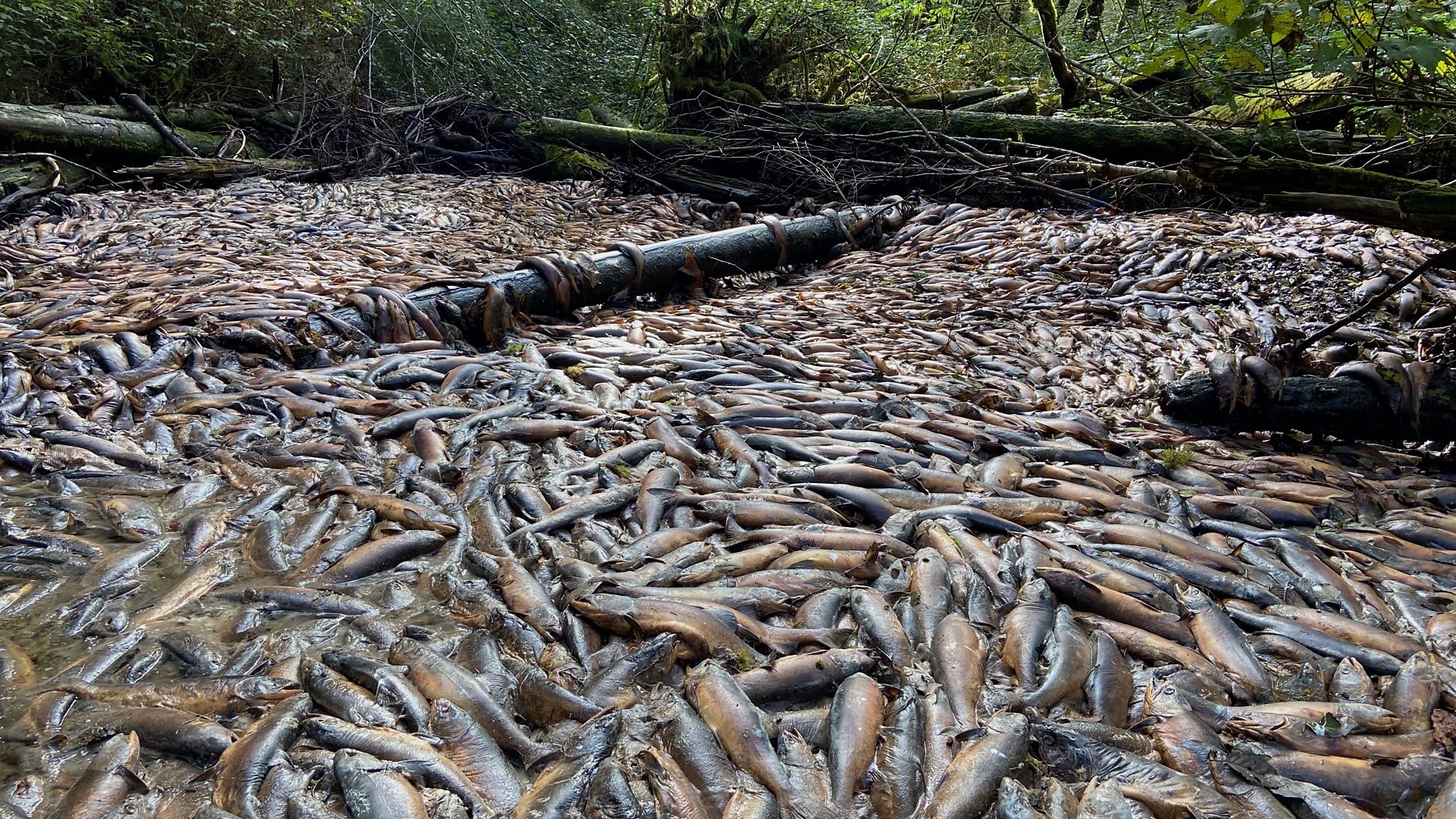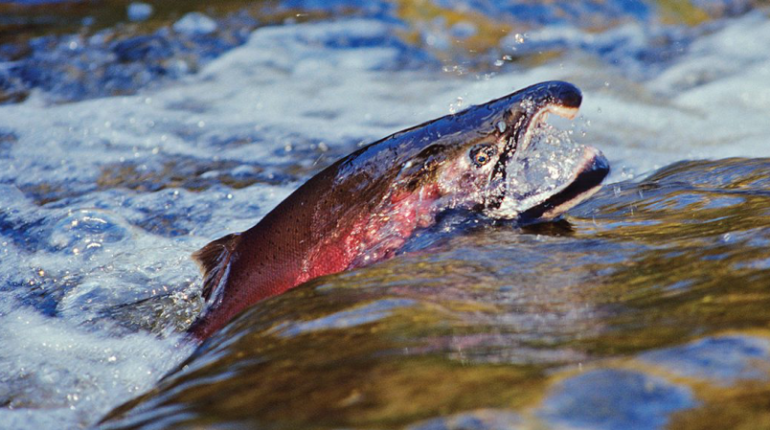Thousands of salmon have been discovered dead in Canada after the stream they rely on to spawn dried up due to prolonged drought. Biologists worry these events will occur more frequently as the climate crisis worsens.
Last week, at least 65,000 salmon were found dead on a creek bed in the Canadian province of British Columbia.
The nearby community of Bella Bella say they are preparing for more devastating natural events such as this one, as extreme heat and drought increase in frequency and duration.
Wild salmon are known to wait for heavy rain as their signal to venture upriver to spawn. The rain, when it occurs, raises the water level of streams and allows for salmon to make their journey to spawning ground safely.
But a short afternoon rain spell followed by a month of drought gave the salmon a false start. About midway through their journey, they were met with water levels too low to complete the mission.
This is Neekas, Heiltsuk Territory. All of these salmon went into the creek, the creek dried up b/c of no rain so far this fall, and just died, and this is just one reach! Global warming is killing everything. This is such a sad scene. Video credit, Sarah Mund pic.twitter.com/vYhEKwD5mN
— William Housty (@WilliamHousty) October 4, 2022



















